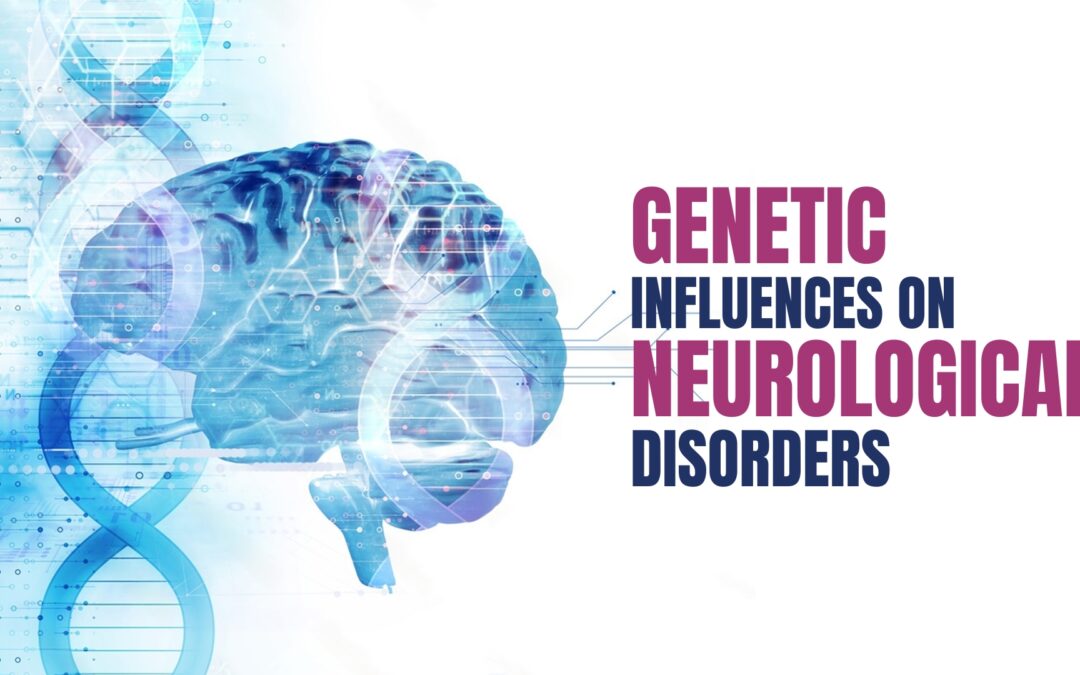Neurological disorders are a group of conditions that affect the brain and nervous system. These disorders can be caused by a variety of factors, including genetics. Advances in genetics and neuroscience have led to significant breakthroughs in our understanding of these disorders and their underlying mechanisms. In this post, we will explore the role of genetics in neurological disorders, and how this knowledge can be used to improve patient care and outcomes.
1. The Genetics of Neurological Disorders:
Understanding the Basics of Genetics: Genetics is the study of genes, which are the units of heredity that determine an individual’s traits. Each gene is made up of a specific sequence of DNA, which provides the instructions for the development and function of the body’s cells. Mutations or changes in the DNA sequence can lead to altered gene expression or function, which can cause disease.
Genetic Causes of Neurological Disorders: Many neurological disorders have a genetic component, meaning that they are caused by mutations or changes in genes involved in the nervous system’s development or function. For example, mutations in the huntingtin gene are responsible for Huntington’s disease, while mutations in the SOD1 gene are responsible for some forms of amyotrophic lateral sclerosis (ALS).
Examples of Neurological Disorders with Genetic Causes: Some examples of neurological disorders with genetic causes include Alzheimer’s disease, Parkinson’s disease, Huntington’s disease, ALS, and Charcot-Marie-Tooth disease.
2. The Role of Genomics in Neurological Disorders:
Introduction to Genomics: Genomics is the study of the entire set of genes and their interactions with each other and the environment. It involves the analysis of DNA sequence data, as well as the study of gene expression, epigenetics, and other factors that can affect gene function.
Genomic Approaches to Studying Neurological Disorders: Genomic approaches have been used to identify genes that are involved in the development and progression of neurological disorders. These approaches include genome-wide association studies (GWAS), which analyze the entire genome to identify genetic variants that are associated with a particular disorder, as well as whole-genome sequencing (WGS), which analyzes the entire genome to identify all genetic variants.
Recent Advances in Genomic Research in Neurology: Recent advances in genomics have led to the discovery of new genes and genetic variants that are associated with neurological disorders. For example, a recent study identified new genetic variants associated with Parkinson’s disease, which could help to improve the diagnosis and treatment of this condition.
3. Clinical Applications of Neurogenetics:
Genetic Testing for Neurological Disorders: Genetic testing can be used to diagnose neurological disorders with a genetic component, as well as to identify individuals who may be at risk of developing these disorders. Genetic testing can also be used to guide treatment decisions, such as in the case of ALS, where genetic testing can help to determine the best course of treatment.
Genetic Counselling for Patients and Families: Genetic counselling can help patients and their families to understand the genetic basis of neurological disorders, and to make informed decisions about genetic testing and family planning.
Personalized Medicine in Neurology: Personalized medicine involves tailoring treatment to the individual based on their genetic makeup and other factors. In neurology, personalized medicine can be used to develop targeted therapies that are tailored to the specific genetic mutations that are causing a particular disorder.
4. Challenges and Future Directions:
Ethical Considerations in Neurogenetics: There are many ethical considerations surrounding the use of genetic information in the diagnosis and treatment of neurological disorders. These include issues related to privacy, discrimination and the potential misuse of genetic information.
Challenges in Translating Genetic Research to Clinical Practice: One of the biggest challenges in neurogenetics is translating genetic research into clinical practice. While genetic research has led to many discoveries about the genetic basis of neurological disorders, it can be difficult to apply this knowledge to the development of effective treatments. There is a need for more research to develop effective therapies that target the genetic causes of neurological disorders.
Future Directions for Neurogenetics Research: There are many exciting directions for future research in neurogenetics. One area of focus is the development of new technologies for analyzing and interpreting genomic data. This could lead to the discovery of new genes and genetic variants that are associated with neurological disorders. Another area of focus is the development of personalized therapies that are tailored to the specific genetic mutations that are causing a particular disorder.
Conclusion: Neurogenetics is a rapidly evolving field that holds great promise for improving our understanding of the genetics of neurological disorders and developing new and more effective treatments. By integrating genetic and genomic research with clinical practice, we can improve patient care and outcomes, and ultimately, improve the lives of millions of people living with neurological disorders. However, there are still many challenges to overcome, including ethical considerations and the need for more research to develop effective therapies. By working together, researchers, clinicians, and patients can continue to make progress in this important field.


